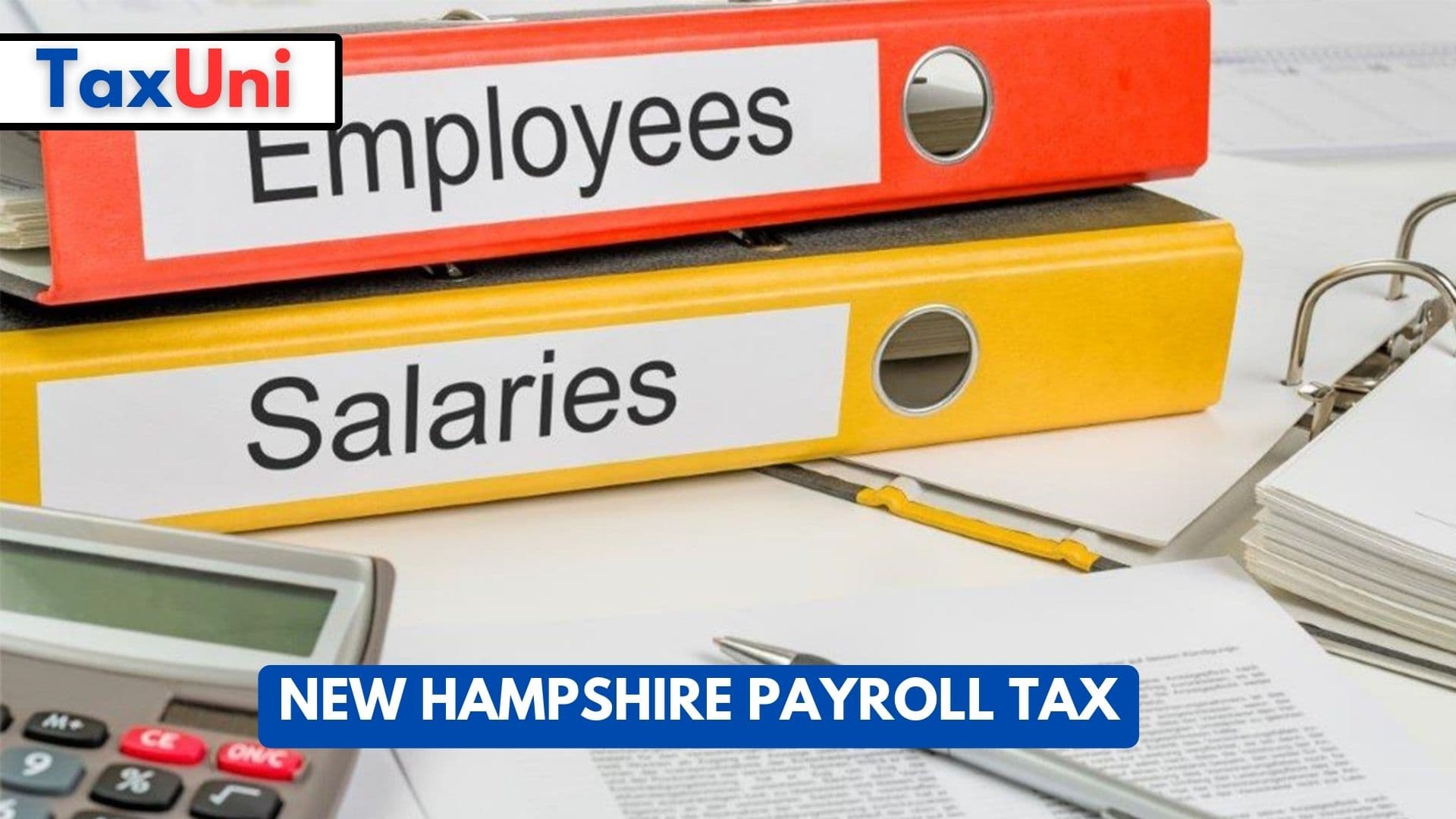New Hampshire Payroll Tax
This guide will explore who must file these taxes, how to file them, due dates, exemptions, and other crucial details to help businesses stay compliant.

Contents
New Hampshire Payroll Tax is a critical aspect of business operations within the state, even though New Hampshire does not impose a state income tax on wages and salaries. Businesses must understand their payroll tax obligations, which include the Unemployment Insurance Tax and Workers’ Compensation Insurance.
Who Must File New Hampshire Payroll Taxes?
Employers who pay wages to employees in New Hampshire are generally required to file payroll taxes. This includes filing for:
- Unemployment Insurance Tax: All employers with one or more employees must file. There are some exemptions, such as small agricultural employers and certain non-profit organizations.
- Workers’ Compensation Insurance: Almost all employers are required to carry Workers’ Compensation Insurance for their employees. Sole proprietors, LLC members without employees, and some family members working in the business may be exempt.
How to File New Hampshire Payroll Taxes?
Filing New Hampshire Payroll Taxes involves the following steps:
- Unemployment Insurance Tax: Employers must file quarterly tax reports with the New Hampshire Department of Employment Security (NHES). This can be done online through the NHES website. Employers need to report wages paid and calculate the tax owed based on the applicable rate.
- Workers’ Compensation Insurance: Employers must purchase Workers’ Compensation Insurance through an authorized insurance carrier in New Hampshire. Filing involves maintaining records of workplace injuries and paying premiums based on payroll and industry classification.

Due Dates for New Hampshire Payroll Taxes
Timely filing is crucial to avoid penalties. The key due dates are:
- Unemployment Insurance Tax: Quarterly reports are due by the last day of the month following the end of each quarter:
- Q1: April 30
- Q2: July 31
- Q3: October 31
- Q4: January 31
- Workers’ Compensation Insurance: Premiums are typically paid annually, but specific due dates may vary depending on the insurance provider. Employers must report injuries as they occur and may have additional reporting requirements annually.
Exemptions from New Hampshire Payroll Tax
There are certain exemptions from New Hampshire’s payroll tax requirements:
- Unemployment Insurance Tax: Some employers, such as small agricultural operations or certain non-profits, may be exempt. Additionally, independent contractors and sole proprietors with no employees are generally not required to pay this tax.
- Workers’ Compensation Insurance: Sole proprietors, LLC members without employees, and some family members employed by a business may be exempt from this insurance requirement





